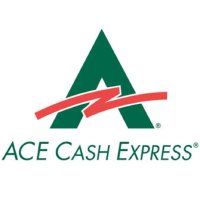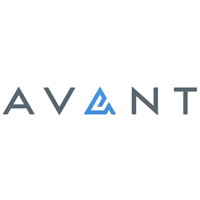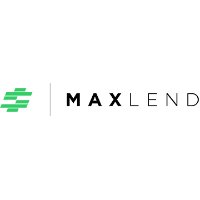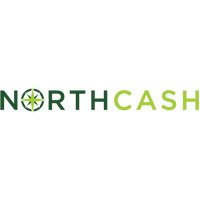Meaning of a Personal Loan
The straightforward definition of personal loan is a loan without collateral applied by a person from a monetary institution such as a bank or Non-Banking Financial Company (NBFC) to fulfill his/individual needs. The credit is approved based on considerations of some basic elements, for instance, the ability to pay, applicant’s credit rating, revenue, employment, etc.
Another essential and distinguishing feature of personal loan service is that there isn’t collateral needed for it to be appropriated. This is different from when you need an automobile, or home loan where the asset involved is used as loan security. Simply put, there is no asset required for security. As such, the credit is non-secured, and there is no collateral placed by the debtor. In case the borrower fails to recompense the borrowed money, the creditor cannot take any asset to compensate for the amount given out.
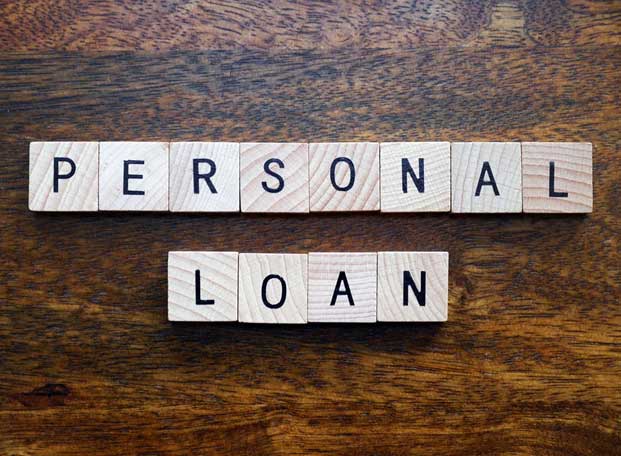
However, because of this enormous risk creditors expose themselves to, they normally charge unusually high-interest rates to offset these risks. You would, therefore, expect that the interest rates for secured lends such as home and vehicle loans are lower compared to personal lends.
Fundamentally, evasion of a non-secured lend is not a prudent thing since that reflects in your credit score and affects it negatively. That may deter you from getting personal loan services from other financial firms and may as well impact your credit card request.
Is There a Maximum Capped Amount That One Can Borrow?
Financial institutions use a specific criterion to determine how much a consumer can borrow. This criterion is based on aspects such as the regular income, credit score, whether you’re self-employed or employed, among other factors. Basically, commercial firms put restrictions on the total you can borrow such that it doesn’t exceed half of your total monthly revenue.
Financial institutions also consider if an applicant has an existing loan, he/she is servicing. And for self-employed people, the total value that they can get is founded on the profit made which is generally taken from the current profit and loss statement, whereas still considering other business liabilities such as lends being serviced.
What is a Minimum Personal Loan Value?
It is hard to determine the lowest lend value, as there is no universal minimum loan value. Usually, each monetary establishment determines its minimum amount.
Purposes for Personal Loans
Merely put, they are general-purpose lends. You can utilize the loan in whichever way you want to use it. However, some creditors dictate what you should use the money for. However, it is essential to look for a good purpose for personal loan before you request it. It is imprudent to pay higher rates for a loan that didn’t help you in the first place. Most borrowers take non-secured credits for the following purposes.
- To meet unanticipated expenses: maybe your windows are letting a lot of moisture and air in and your home has become less energy efficient. You need to call your installer to repair them, but you don’t have enough money. As such, you want to consider a non-secured loan to shoulder those expenses. Ailments are another unanticipated expense that may drain your pocket, therefore, necessitate immediate loans.
- Significant events: you may need to finance a major occasion such as a funeral, but your savings aren’t enough. The deficiency between what you have in your account and what you need to pull off the event can be met by opting for a non-secured loan. Other momentous events that may necessitate a personal loan include moving to a new apartment, weddings, etc.
- Debt consolidation: you can utilize the proceeds from a loan to pay off your credit cards. You may realize that the interests of your non-secured lend are even lower than the average interest rates of your credit cards.
- College: there are various reasons why you might opt for an unsecured lend to pull off your college fees. First, the government loan’s rates could be higher compared to that of a personal loan and secondly, you might be earning a high income to be able to take such loans. However, you might not enjoy the tax benefits that come with government loans. Confirm that with your local tax expert to ensure you don’t get chimed at tax time.
- Business loans: you can take an unsecured loan to add stock to your business.
Essential Things to Know Before Applying for a Personal Loan
Yesterday, I called my bank to request for my bank statement because it wasn’t sent to my email on time. I laughed when, after solving the issue I had, the banker asked whether I was interested in applying for an unsecured loan.
Non-secured loans have their pros and cons, unlike collateral loans. So, whatever the reason is compelling you to take the loan, you should ensure it is a good purpose for personal loan. Here are some essential aspects you should know before taking a personal loan:
1. If you need a permanent solution for your financial issues, you aren’t going to get it by taking a non-secured loan
Whereas an average home mortgage is repaid for some decades, the term limits for personal lends are usually lower. This is the recommended thing since there is no justification why you should take a loan and pay it off for longer than necessary. However, it also implies that if you’re getting a loan for a significant amount of money, like to renovate your home, the repayments might weigh you down, and finally fail to keep up with the repayments.
2. The interest rates might be higher than you think
When you hear fiscal institutions advertising for the interest rates for the home mortgages, that is motivating, and you think you can take a mortgage. However, that is not what we are deliberating here; we are talking about non-secured loans that their rates can be twofold that of collateral loans. The reason is apparent: when you apply for a home mortgage, you are placing the home itself as a security asset. You agree with the bank that in case you fail to pay, you are ready to relinquish the home. That is a considerable risk for you, and the creditor is assured of the security of his money, as opposed to personal loans where if you can’t pay, the creditor has nothing to take for compensation. In return, banks charge lower interest for collateral loans and higher stakes for non-secured loans.
3. Your credit rating comes in handy
With no asset for security, the only thing a creditor has to rely on is the evaluation of your creditworthiness. If you aren’t creditworthy, you can expect that your interest rates will be exceptionally higher compared to the debtors with an excellent credit rating. So, before taking an individual loan, work on your creditworthiness to make yourself desirable to fiscal institutions. We will tell you how to accomplish that in the latter part of this article.
4. Apart from banks, there are other options
You shouldn’t always rely on banks when you need a loan. There are other options, such as credit unions and online lenders who have low-interest rates. Some financiers offer personal lends specifically to the borrowers with poor credit ratings.
5. Individual loans are a lifesaver
One of the key reasons why folks choose individual lends is to cater for crises. For instance, emergency health bills, a broken door or, God forbid, a funeral. Surprisingly, many people opt for payday credits or their credit cards. These options are demonically punishing, but anyway, people choose them because of the situations they find themselves in.
When you request a personal credit, you can get money in your bank within days or weeks. Though somewhat slower compared to paydays or credit cards, they are much more affordable, hence better options.
6. It can save you from your existing loan
One of the primary purposes of taking an individual loan is to consolidate the debts you already have, such as your student loan, auto credits, and credit cards. You may do that to take advantage of lower rates compared to what you are currently paying on the existing debts. You may also benefit from only servicing a single debt monthly. However, you need to be careful when consolidating your bills.
7. Never ever get a personal loan to finance some expenses
One best thing about non-secured loans is that unlike collateral-loans such as a mortgage, you don’t need to explain what you want to use the credit for. But there are some essential aspects you ought to understand better than to borrow, whether you are using a credit card or taking a non-secured loan.
Don’t take a loan to purchase a wedding gown; why do you want to start your marriage journey with the accumulation of debts? Though some banks would advertise travel loans for couples. Actually, that isn’t a good idea. What about when the vacation is over? Would you have anything remaining to vend and pay off the loan? Lastly, I don’t think I will be doing justice to my fingers if I type to tell you that you shouldn’t take any credit for gambling.
Another more complicated question is whether it is prudent to get a non-secured loan for a home down payment. The rationale for needing a buyer to pay some money as a down payment is to prove that he can afford the home. The mortgage lender might not be impressed if you finance the home using an unsecured loan. Again, if you opt to go this route, you need to do this cautiously, since pilling debt in the form of unsecured loans could hurt your applications for mortgages on a later date.
Advantages of Personal Loans
- You may request for more money than you can get when utilizing your credit card.
- It is easier to plan for personal loans since its payment terms are customarily fixed; therefore, you can budget how to pay for it.
- Fixed interest rates (not you should check that with your bank whether it is fixed or flexible).
- When taking personal lends, fiscal institutions permit you to choose the loan repayment duration you are comfortable with. However, when determining the term, bear in mind that the longer the period, the higher interest rates accrued.
- It offers you a chance to consolidate several debts. However, you need to be careful when doing so since this might lengthen the loan repayment duration and potentially compel you to repay more.
Disadvantages of Personal Loans
- The main con of individual loans is that you pay more interest rates compared to other types of borrowing, especially if you take smaller amounts. These excessive rates are occasioned by a lack of collateral, which exposes the lender to high risks.
- Since the interest rates are also determined by how much you take, you might get larger amounts than you need. That might be a burden to you when recompensing the loan.
- Most banks put a minimum amount one can borrow at $1000 or repayment term of less than a year. As such, you might be compelled to take more money than needed.
Online Personal Loan: Good or Bad?
If you require quick money, the only thing which could be standing between you and having the money in your bank is not applying for a personal loan online. Online personal loan lenders can get money into your account as quickly as possible ― sometimes in just a few hours after request or twenty-four hours depending on the scale of the credit you asked for.
If you hope to apply for a personal loan online, you can consider institutions that provide loans online or online-only financiers. There are no significant discrepancies between these two lenders, but you need to be conversant of some demerits and pros of applying for a personal loan online.
Pros
Getting a loan online provides one huge advantage ― flexibility. Both online-only lenders and online banks allow customers to apply for the loans online and submit the needed substantiation credentials such as your ID or bank statements. However, some banks may require you to go to the nearest bank branch and sign the final forms. Nevertheless, with the online-only financiers, you are sure that the complete process of loan application is done online.
Some online creditors allow you to apply for the prequalification and carry out soft credit examination. Typically, this doesn’t affect your credit rating. They allow you to send many prequalification requests to get the best lenders when probing for a loan.
If you decide to bid for the loan, you will need to fill in an application and accept a hard review on your credit profile, which may impact on your credit rating. While the hard inquiry has an impact on your credit score, a single query doesn’t have a significant effect on your credit score. Besides, it doesn’t prevent you from getting a loan when you want it.
When applying for a loan online, it is vital to compare personal loan online providers so that you can enjoy the best loan terms and interest rates you are looking for. Doing this online quickens the process. To do this, get an online site that allows you to easily choose and compare different online loan lenders and opt for the right one depending on your needs.
If you are applying for a loan online, the whole application and financing process is usually quick and straightforward. The application, appraisal, and approval process can be accomplished from the comfort of your sofa at home. You don’t need to waste time and energy going to the line at the counter to submit the application forms or sign for the final documents. Sometimes, you can apply for it, and before you are done cooking your lunch, you get money deposited into your account!
If your credit rating is not satisfactory, with online creditors, you still have an opportunity to be approved for a loan. Some online creditors even lend exclusively to people with poor credit ratings and provide low rates.
However, when the deal is too good, rethink. If you find those lenders who lend money to people with bad credit history, be extra vigilant as there might be a trap. Some charge unreasonably inflated interest rates and hidden fees such that it becomes challenging for you to pay off their sum.
Cons
You might know your banks, credit SACCOs, and some of the well-known online-only lenders. But do you know all online-only lenders that come to you promising low-interest rates and mouth-watering terms? It is vital to be skeptical, especially when it comes to issues concerning sharing your data online.
However, there are ways you can stay safe. Before sending any request, check the reviews of the lender online and look for the complaints with the Better Business Bureau (BBB). You also need to be aware of the credit card scams.
While you are opting for online personal loans mainly because of attractive and quick approval of the funds, you shouldn’t ignore the fact that your credit union and bank might be offering better interest rates on the personal loans. For instance, there is a possibility to be given a discounted interest rate if you have a savings account or a significant amount of money with the bank.
If your credit is poorly scored, you can opt for government credit unions. These are non-profit institutions and might be the best option. They don’t take more than 18% on the personal loans they give out. If you compare that with some online-only financiers who charge a whooping APR of 36%, the former is better twice.
Personal Loan Interest Rates
One aspect that people consider before choosing a particular type of loan is the interest rates charged on it. Just like going shopping into a supermarket with a shopping list makes sure you get what you want, when it comes to personal loans, understanding what to look for while looking for the best personal loans will help you avoid high-interest rates and hidden fees.
How Do Interest Rates Affect Personal Loan Cost?
When looking for a loan, you will see that the interest rate is calculated as the annual percentage of the total amount borrowed plus any other fees. Typically that’s what is referred to as APR. For example, this table below shows a different sum amount you end up paying when you take $10 thousand over a lifetime of 5 years contingent on varying APR.
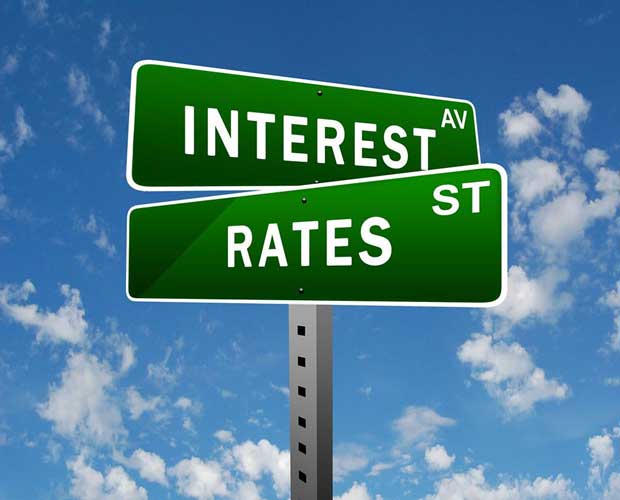
| Loan | Loan amount | Loan term | APR | Monthly payments | Total amount paid | Total interest paid |
| Loan M | $10,000 | 5 years | 7% | $198 | $11,881 | $1,881 |
| Loan N | $10,000 | 5 years | 13% | $228 | $13,652 | $3,652 |
| Loan O | $10,000 | 5 years | 18% | $254 | $15,236 | $5,236 |
As is evident in this table, the amount of interest charged on loan is enormously essential. If you get loan O, 18% interest rate charged significantly increases the credit by over half.
So, What is the Average Interest Rate on Personal Loan?
To summarize this, I would say that there is no universal one size suitable for everyone when it comes to the interest rate on a personal loan.
According to Federal Reserve data, the average yearly percentage interest rate charged by commercial banks on personal loans for two years was 10.22% in 2018.
While that might sound impressive to many borrowers, some financial institutions provide personal loans with APR of as high as 36%. Some lenders even charge higher than this, especially for borrowers with poor credit ratings.
Generally, what differentiates a personal loan with lower rates, one that is average and that with a pretty high-interest rate is your credit rating and credit history. Typically, if your credit history and your credit rating are incredible, you can be approved for a loan with low-interest rates. And if your credit score is not appealing, you are more likely to be charged higher interests.
Good Interest Rate for Personal Loan
If you check at the table of the best interest rates for personal loans 2019, you will realize that most financial institutions provide loans at rates of between 6%-36% range. A good interest rate for personal loan should lie somewhere within the lower end of this range. However, you would expect creditors who provide personal loans to borrowers with excellent credit such as Freedom Plus and Barclays will give impressive rates on unsecured loans.
The Link Between Personal Loans and Credit Score
One of the major factors that lenders use to determine your eligibility and how much to give you as a personal loan is your credit score. The interest rate charged on your personal loan is indirectly proportional to the credit rating.
If for instance, you have a credit rating of 800, which is considered excellent, you would not have issues getting approved for low-interest rates. In fact, if you keep your credit score over 740, you will be eligible for the lowest interest rates on personal loans from any lender.
Borrowers with a credit rating of between 700-740 may still get the best deals, but they might be charged higher interest rates compared to people with outstanding credit. If you have a credit score of between 600-700, you could still get some online lenders who may approve your application for a personal loan, but with mediocre interests. If your score is below 600, it would be tough to qualify for a personal loan from most financial institutions, apart from those who specialize in providing personal loans to persons with demanding credit rating. You may also fall into lenders with ridiculously high-interest rates.
How to Enhance Your Credit Score
It is always a good idea to enhance your credit rating if it is not appealing to creditors before you think about applying for a personal loan. As such, you increase your chances of getting a low-interest rate. Here are some things to do to increase your credit rating quickly.
- Get your credit report: to solve a problem, you must find out the cause of the problem; otherwise, you will not solve it. So, if you want to enjoy low rates on your loan by spicing up your credit score, you should find out what is weighing it down. The first step is to get your credit report from main credit bureaus such as TransUnion, Equifax, and Experian. Go to AnnualCreditReport.com, and you will be able to access it freely.
- Pay all your outstanding debts: one of the sure-fire ways to boost your credit rating is to settle all your unpaid bills. Payment history affects your credit rating, so paying all your debts on-time raises your credit profile. Besides, paying off the debt of your credit card will aid you to enhance your credit usage, which also hugely determines your credit rating, by bringing down your debt-to-credit ratio.
- Wait for at least half a year before making a subsequent inquiry: however, though this is not as vital as your credit utilization or your payment history, multiple inquiries affect your credit rating. An inquiry happens whenever you request a credit, (whether a credit card, a loan, or any funding) and the financial firm executes a hard inquiry on your credit profile. While less than two hard inquiries might not affect your credit rating significantly, carrying out several of them can pull down your score.
Fortunately, inquiries are scrapped from your credit profile after twenty-four months, and they don’t affect your credit rating after twelve months. So, if there are multiple inquiries on your profile, you want to wait until a year is over so that you can think about applying for a loan. After that period, your score might have gone up and be approved for a personal loan with low interest. - Report any erroneous issues on your credit profile: there is a possibility that the problem that is decreasing your credit rating is entirely not your mistake. If you realize errors in your credit report or some distorting comments you don’t know about, take action and report to all the three main credit bureaus.
- Wait until poor comments are removed from your credit profile: finally, if you realize there are poor comments on your credit profile that are making your profile remain down, you can opt to wait until they disappear. In most cases, that takes seven years for all the negative comments to be scrapped from your credit profile; though there are exceptions where they can remain for ten years.
Where to Get Personal Loan with Low Interest
While the amount you can qualify for a personal loan is determined by factors such as your credit rating, income, employment, and other factors, some places provide better interest rates compared to others.
Traditional banks are some of the best avenues where you get a good interest rate for personal loan. These are some of the main places people choose to go whenever they need a loan. However, it is not easy to get approved for personal loans in traditional banks. To qualify, you need to have spotless credit rating and above everything, a stable income.
These unions are not established to make profits. They are financial organizations owned by members, and they usually pass the benefits to its members by giving them low-interest rates loans and better returns. Since they are member-owned, in many instances their personal loan interest rates charged on members are lower compared to that of traditional banks. However, you need to be a member of a credit union to be considered for these loans.
Nowadays, online-only lenders and online banks are factually everywhere thanks to their appealing interest rates and flexibility of their operations. Since they don’t incur the costs of operating from a building, they can give personal loans at low-interest rates that are more favorable compared to those charged by traditional banks. Besides, they don’t involve a lot of bureaucracies on personal loan requirements when it comes to approving you for the loan. The appraisal and the financing process also tales lesser time compared to the other lenders.
So, from traditional banks to credit SACCOs, to online-only lenders, understand that there are multiple options, and make sure that you compare different options and choose the one that offers the best personal loan with low interest. By committing some hours looking for the financial institutions with a better interest rate on personal loan, you could salvage hundreds on interest rates. Who doesn’t want that?
How to Get a Personal Loan
If you need some funds to finance your home remodeling or your home renovation, getting a personal loan can help you accomplish that without much hustle. These are typically unsecured loans, implying that you don’t use your assets as security. The personal loan amounts typically range from $1,000-$50,000 and repayable in fixed installments, usually over one or 5 years. Interest rates charged vary depending on your creditworthiness.
Steps of Getting a Personal Loan
1. Know your credit rating
Having excellent credit rating places you in a better position to get a personal loan you are applying for. It is among the elements that money lenders look at when considering whether to approve your loan or not and if they approve, how much to give you. So, evaluate your creditworthiness by looking at your credit rating. Here are the universally accepted categories you can use:
- 720 and above: Excellent.
- 690-719: Good.
- 630-689: Average or Fair.
- 300-629: Poor.
If you find your score ranges between the poor or fair scores, you need to follow the steps we highlighted above to boost it and increase your creditworthiness. And if you think your credit score is erroneous, you can follow up with credit bureaus and have it corrected.
2. Compare projected interest rates
Getting your credit rating will help you know the projected interest rate you would be charged on the personal loan, and also the amount you may get.
3. Get prequalification
Applying for a loan prequalification gives you an idea of loan offers you might get. Most financial firms carry out a soft credit check during this process, and it doesn’t ruin your credit rating. So, it is essential to do it. During prequalification, the lender may need the following information:
- phone no., address, email;
- date of birth;
- social security number;
- mother’s maiden name;
- month debt obligations;
- college name;
- previous address.
Your loan pre-qualification might be denied. Apart from bad credit score, other reasons why you might be denied include:
- meager income;
- lack or little work history;
- so many credit inquiries;
- large debt-to-income ratio.
4. Shop around
After the prequalification, now you want to compare the interest rates, payment terms, and the loan amount. Online-only lenders provide flexible terms and a lot of convenience than traditional banks. Credit unions also provide good interest rate for personal loan and are some of the best lenders for small loans.
Traditional banks can give you large amounts, but then you need to have an exceptionally high credit score and stable income. They might also provide personal loan with low interest if you have established a long-term customer relationship with them. The best way to get personal loan with good terms is by shopping around.
5. Compare what other lenders offer you with other credit options
Check if you can be approved for a 0% credit card: if your credit rating is good, you may get a credit card with 0% interest for goods you buy for 12 months or more. If you can afford to pay off your loan within that time, then you should opt for your credit card.
Think about a secured loan: perhaps you are not creditworthy. In this case, you may get better interest rates if you choose a secured loan. However, you will have to provide an asset such as a home as security. If you can give out collateral, a secured loan could be a better option.
Add a co-signer: this could be a way out for the people who aren’t creditworthy. The financial institution evaluates the income and credit rating of both parties and may give better loan terms.
6. Go through the fine print
When it comes to matters of finances, you need to read everything and make sure you have understood it. If you don’t understand it, you should ask for clarification. Some of the things you should be aware of include, prepayment penalties, ARP surprises, direct payoffs to creditors, automatic withdrawals, etc.
7. Final approval
Once you have chosen the right lender that suits your financial needs, you should present the following requirements for a personal loan application:
- Federal-issued ID: you may also provide a passport or driver license.
- Bank statements: it is proof of how much you have and whether you are employed or self-employed.
- Social security number: it is needed to evaluate your credit rating.
- Proof of employment: lenders ask for at least pay slips of the last three months.
- Verification of address: you may need to provide a lease copy or your utility bills as proof.
- Employer’s contact information: some lenders tell you to provide the contact information of your employer and in some instances that of your former employers.
- Photo of identity.
The lender at this point executes a hard credit check that might bring down some marks from your credit rating. Upon final appraisal, you get your money according to the terms agreed upon with your lender.
Personal Loans near me
Long gone are the days of walking into a bank, and asking to see the manager or loan officer for credit. Nowadays, it is as easy as searching for “personal loan near me.” But this is not a foolproof way thanks to the proliferation of online banks, alternative lenders, bad credit lenders, tribal lenders, and credit unions, all offering similar loan products. Therefore, you might get confusing results when you use a search phrase like “personal loans places near me”.
So, which is the best way to find quick personal loans near me online? Well, you can take the loan matching service route. In the lending world, some companies specialize in helping customers secure loan products. They offer this service for free, like CashSpotUSA. Now, on this site, you don’t have to search for “small personal loans near me.” All you have to do is select apply now, and you’ll be matched to approved lenders based on your zip code.
Final Word
Applying for a personal loan can help you solve the biting unexpected financial needs, but be keen and weigh various options before choosing one. Apply only for what you need, go for the lowest interest rates, and don’t fail on your repayments.
